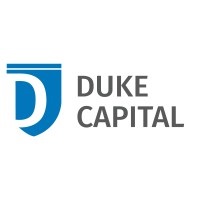Duke Capital plc (LON:DUKE) is the topic of conversation when Hardman & Co’s Analyst Mark Thomas caught up with DirectorsTalk for an exclusive interview.
Q1: You called your recent initiation piece ‘Meeting customer needs, giving investors returns’, what can you tell us about it?
A1: Duke Capital’s unique product provides SMEs across diversified sectors with hybrid, long-term capital, but still allowing the existing team to retain control of the business. By optimising the best of equity and debt, the company aims to achieve equity-type returns with debt levels of risk. It has four pillars to its returns:
A senior secured loan, at interest rates typically over 12% supports their shareholders’ high dividend yield, on our estimates, currently 9%. Second, there is a participating preference share, which grows with customer revenue growth. This, incidentally, is a good inflation hedge as its value increases if borrowers pass on inflation and so grow their revenue line. The third and fourth elements are early exit fees and equity stakes, which should generate ongoing capital growth as the portfolio matures. PE-style due diligence before providing capital, and board participation after, reduces downside risk and management and shareholder interests are aligned.
The key thing, to me though, is it has a unique product, which meets specific customers’ needs and, by doing that, it can generate good returns.
Q2: You highlight the growth options they have, can you summarise them for our listeners?
A2: The company’s earnings can grow with i) more revenue in the existing book as clients grow revenue, ii) positive inflation gearing, iii) gross advances (new clients and follow-on investments), iv) operational leverage, v) exit fees, vi) increasing value in equity stakes, and vii) high barriers to entry limit competition.
Q3: What about the downside protections?
A3: Risk appears well managed with i) a highly selective approach to new deals, ii) appropriate counterparty assessment and excellent ongoing monitoring, iii) portfolio diversity and senior security, iv) active management of problem situations, and v) a floor to annual revenue adjustment.
Q4 Your note highlights how Duke Capital’s product sits between equity and debt and that it is by giving customer benefits that it can generate investor returns. What are the key customer benefits?
A4: The finance is long-term with an initial contractual term of up to 30 years. Borrowers can redeem early, but they have certainty in finance. The product is amortising, so there are no large bullet repayments to face at maturity. Unlike private equity, the control of the business stays with the current owners, who retain the vast majority of the upside if the business performs well.
Other benefits include the tax deductibility of the cost (unlike PE dividends), there are no sector limits constraining finance (unlike the banks), and covenants are sensible.
Q5: Finally, what about the risks?
A5: Counterparty risk is core to any finance provider. Currently, there is adverse sentiment to most speciality finance businesses. We see a short-term dependence on key staff. Many investors are unfamiliar with the product, there are few comparators, and the underlying assets are likely to be illiquid.
Duke Capital is a leading provider of hybrid capital solutions for SME business owners in UK, Europe, and North America, combining the best features of both equity and debt.



